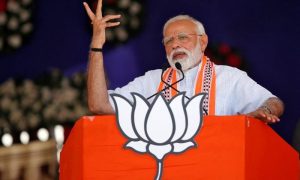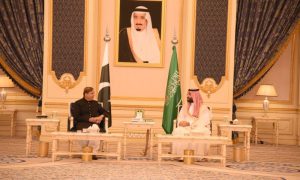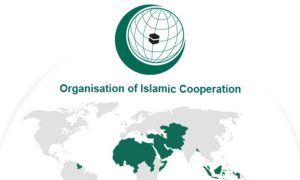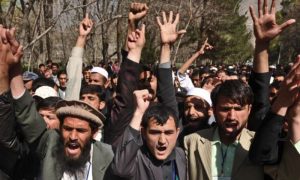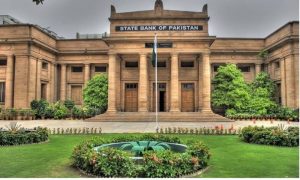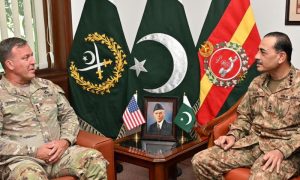Middle East crisis deepens every day. Israel has killed nearly 30,000 Palestinians in attacks on Gaza since October 7, 2023. Over a million Palestinians are trapped at Rafah, Gaza’s southernmost point, with the Israeli army preparing a ground attack. Rafah straddles the border between the Gaza Strip and Egypt.
On the Palestinian side, Rafah is the name of Gaza’s southernmost governorate and its capital city, as well as of the crossing into Egypt’s Sinai. On the Egyptian side, it is a city in the North Sinai governorate.
In the last four months, 1.4 million Palestinians have been pushed into Rafah by relentless Israeli bombing. Israel is already killing more than 100 people a day in air attacks on Rafah, reported Al Jazeera.
People are in dense clusters in a limited space without any life support. Trapped civilians are pressed up against the border with Egypt. Analysts say it seems likely that Israel wants to push them into Sinai, Egypt. This raises concerns over Egypt’s internal security and the prospect of having more than a million traumatized Palestinians forced into its territory.
Egypt has reportedly moved 40 tanks and armoured personnel carriers to the Gaza border to halt any potential spillover from an Israeli land assault. Egypt has also warned that any Israeli ground assault on Rafah would have “disastrous consequences” and that Israel’s aim to force the Palestinians out of their land would threaten the 40-year-old Camp David peace accord between the two countries.
Towards the Red Sea, Houthis are also flaring up issues and strengthening their cause. Houthis legitimize their actions in the eyes of those who sympathize with the Palestinian cause, distract from the more immediate issues associated with the Yemen conflict and the failures of Houthi governance, and potentially broaden the base of their support beyond Yemen’s borders.
The Houthis’ influence in the Red Sea and Israel’s preparation for an attack on Rafah have serious implications for regional and international politics, which need immediate attention to effectively address the challenges they present. Attacks by Houthis on maritime traffic in the Red Sea have resulted in disruption of global shipping trade and have forced companies to reroute traffic, raised shipping costs, and led to a significant drop in freight volume.
The Houthis, bolstered by Iranian support, position themselves as a force that can counter Israel’s atrocities in Gaza through direct action.
The bond between the Houthis and Iran has grown deep, entwining their fates and regional ambitions. As such, a balanced stance toward the Houthis is essential, recognizing the complexity of their involvement in Yemen’s conflict and the broader geopolitical implications. This approach should neither underestimate their influence nor respond in a manner that could escalate tensions unnecessarily. While it is essential to scrutinize the factors that might drive support for the Houthis — mainly by taking the lead in protecting against the catastrophic loss of human life in Gaza — it is also critical to hold Iran and the Houthis accountable for contributing to the conflict and suffering in Yemen.
This dual approach of security measures and political empowerment offers a pathway to gradually contain the Houthis’ influence while laying the groundwork for long-term stability in Yemen and the region.
To this end, greater action should be taken to empower local actors who are committed to a peaceful resolution in Yemen and the region. This involves providing support for inclusive dialogue processes and strengthening the capacity of local governance structures. By enhancing the legitimacy and efficacy of local actors opposed to the Houthis’ violent methods, the international community can help create a more favorable environment for a political solution. Additionally, addressing legitimate grievances among the Yemeni population — such as economic hardship, political disenfranchisement, and lack of access to basic services — can reduce the appeal of the Houthis’ narrative and undermine their support base.
Western analysts put Houthis’ strategic alliance with Tehran as part of the “Axis of Resistance” is at the center of understanding the larger geopolitical contest in the Middle East.
It also necessitates the review of US backing to Israel for ongoing genocide and restriction on aid to meet the human catastrophe in Gaza. Houthis openly support Gaza and atrocities on women and children at the hands of Israel.
The Houthis are disrupting the local adversaries, like Rashad al-Alimi, head of the Presidential Leadership Council (PLC), branding them as Western collaborators. However, their primary aim remains centered on advancing their own political and military objectives within Yemen, rather than genuinely championing the broader Arab causes they invoke.
The Houthi-Iran relationship, while offering strategic and military advantages to the Houthis, predominantly serves Iran’s broader regional ambitions.
In the face of growing international pressure, the Houthis are likely to continue to employ a strategy they have mastered over the years: buying more time while doubling down on unattainable demands. This approach aligns with their historical tactic of using conflict as an opportunity to consolidate and expand their influence. This suggests that the Houthis’ primary aim is to further their own interests, ensure their survival, and extend their control. While outward appearances suggest indifference to external pressure, it is likely that the Houthis are actively navigating a complex interplay of geopolitical realities and perceptions, shaping their responses and strategies in light of the evolving international landscape.
Israel is extending conflict beyond Gaza to Rafah and Egypt. Houthis are obstacles in the Red Sea and create issues for global trade. Israel has ignored the US and UN requests not to attack Rafah. So, the Middle East is in dire need of some intervention by external players to intervene.













